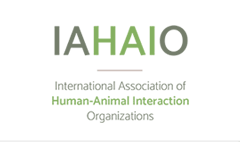Abstract
The purpose of this qualitative community-based participatory research was to explore the safety perspectives of stakeholders involved in an adaptive horseback riding program designed to enhance the quality of life of adults living with dementia and their care partners. Human–animal interactions are becoming increasingly popular therapeutic interventions; however, there is still a lack of understanding about the safety considerations for providing adults living with dementia opportunities to interact with horses and the equine environment. To advance our understanding, researchers analyzed 10 semistructured interviews and two focus groups with therapeutic riding program instructors and staff, aging network specialists, and care partners of adults living with dementia. The Professional Association of Therapeutic Horsemanship International’s Core Standards served as a framework for analyzing main themes that emerged. Regarding administration and business, stakeholders expressed the need for enrollment procedures, such as screening to determine riding eligibility, comfort around horses, functional capacities, and clearance by their doctor to ride. In relation to facility and equine management, stakeholders shared questions about accessibility, including mounting procedures, space and equipment considerations, and horse training. Information gleaned from this study may help researchers, instructors, and community stakeholders develop optimal safety practices and, in turn, provide reassurance to facilitate expansion of these services, offering more opportunities to safely enhance the quality of life of adults living with dementia and their care partners.
Recommended Citation
Oestreich, Alicia A. and Fields, Beth E.
(2022)
"Stakeholders’ Perspectives on the Safety of an Adaptive Riding Program for Adults Living with Dementia and Care Partners,"
People and Animals: The International Journal of Research and Practice: Vol. 5
:
Iss.
1,
Article 9.
Available at:
https://docs.lib.purdue.edu/paij/vol5/iss1/9
Included in
Alternative and Complementary Medicine Commons, Animal Studies Commons, Community Health Commons


